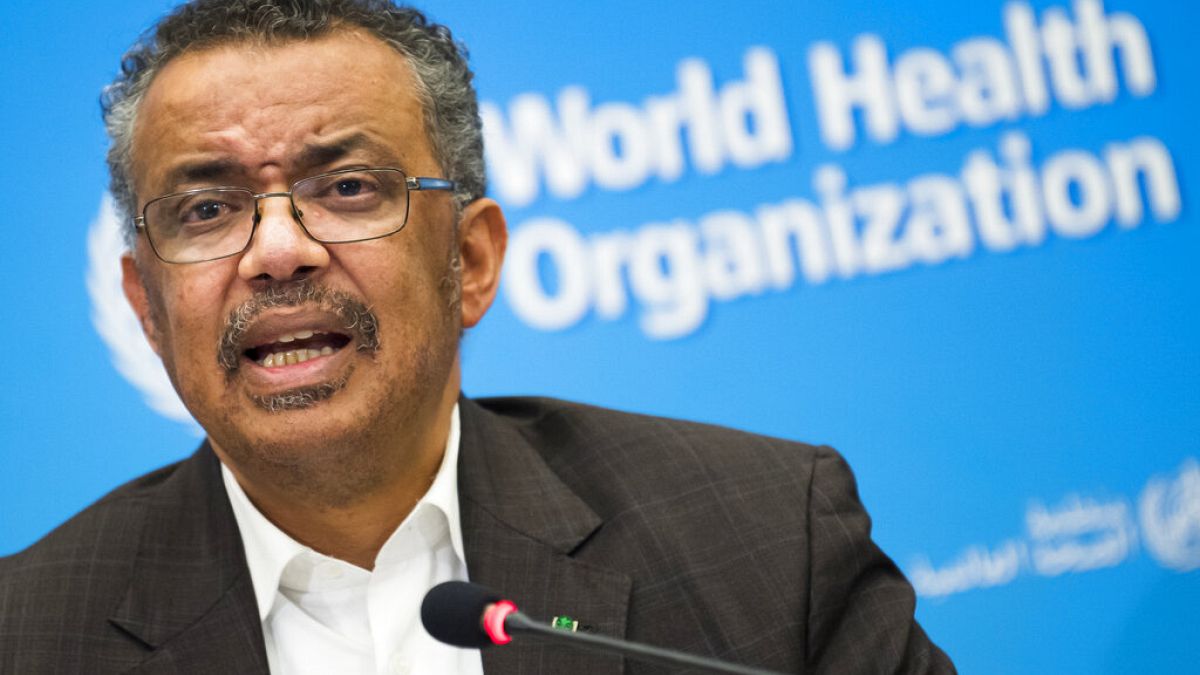A global health emergency usually means more resources and reporting obligations but states do not always follow WHO's guidance
Coronavirus has been declared a global health emergency after the outbreak spread from China to more than a dozen countries.
The World Health Organization's (WHO) announcement on Thursday came as the number of cases spiked more than tenfold in a week. China counted 9,692 confirmed cases with a death toll of 213, including 43 new fatalities.
WHO defines an international emergency as an ''extraordinary event'' that constitutes a risk to other countries and requires a coordinated international response.
But what will the declaration change concretely? Euronews spoke to medical and legal experts to find out.
Warning systems
Devi Sridhar, a professor of global public health at the University of Edinburgh, told Euronews that WHO's move was "quite important for a number reasons".
And one of those reasons is that it will help governments to move their warning systems up, the expert said.
For instance, in the UK, authorities raised the risk level of the coronavirus from low to moderate as a result of the WHO's declaration, Sridhar noted.
The announcement also imposes more disease reporting requirements on countries.
Resources
A declaration of a global health emergency typically brings greater money and resources.
"My hope is that the declaration will help trigger more resources going to poor countries," Sridhar told Euronews.
China, in this regard, is not the main worry, as noted by WHO chief Tedros Adhanom Ghebreyesus.
''``The main reason for this declaration is not because of what is happening in China but because of what is happening in other countries,``'' he said on Thursday.
''Our greatest concern is the potential for this virus to spread to countries with weaker health systems which are ill-prepared to deal with it.''
The Bill and Melinda Gates Foundation has already given $10 million (€9 million) in aid to fight the coronavirus outbreak, not just in China but in Africa.
The question now is whether institutional donors - including the World Bank and western nations - will also put some money up.
Trade and travel
But a declaration of a global emergency may also prompt nervous governments to restrict travel and trade to affected countries.
In the wake of numerous airlines cancelling flights to China and businesses including Starbucks and McDonald's temporarily closing hundreds of shops, Tedros said WHO was not recommending limiting travel or trade to China.
``''There is no reason for measures that unnecessarily interfere with international travel and trade,'' he said.
In a written exchange with Euronews, Mark Eccleston-Turner, a lecturer in International Law at Keele University, said it was crucial that states ``"do not impose any unnecessary and potentially unlawful restrictions on trade and travel to the affected area.`"
``"Doing so, would potentially be a breach of international law, and only serves to undermine the International Health Regulations, and be counterproductive to the global response," he added.
"We need facts, no fears," Sridhar told Euronews, noting that it was essential to counter sensationalism and fake news with science.
Political will?
Ultimately, experts note that WHO recommendations are non-binding and their effectiveness, therefore, relies heavily on the political will of countries.
``''Declaring a global health emergency can act as a clarion call to galvanise high-level political and financial support, but that is dependant on political will,'' Eccleston-Turner told Euronews.
``''What is crucial now, is how governments and aid agencies respond to this declaration – WHO needs to be given the tools to bring this outbreak under control. This will certainly involve a large increase in financial assistance from member states, as well as collaborating with other UN agencies,'' the legal expert said.
But experience shows that countries can sometimes disregard WHO guidance, even in the case of a global health emergency.
During the ebola outbreak in 2014, for instance, many countries imposed travel restrictions even as the UN health body recommended not to.
